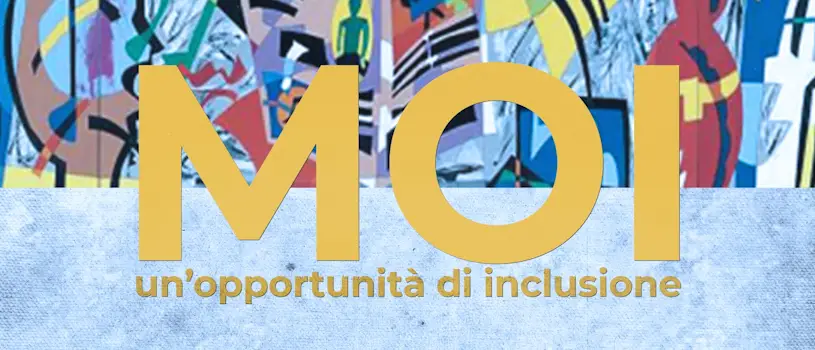The conference held to present the document was also attended by the Head of the Civil Liberties and Immigration Department of the Ministry of the Interior, Prefect Michele di Bari, testifying to the ministry’s interest and support for legality and solidarity projects for local communities.
The MOU is intended to apply tools, methodologies, practices and strategies already tested in the MOI Project to similar interventions carried out in the city, to strengthen the inclusion of vulnerable people and guarantee adequate safety conditions, with the aim of encouraging the provision of healthy places to live and opportunities to achieve independence for people like migrants, who have left institutional reception systems without having achieved a sufficient degree of autonomy, people accepted by the MOI Project who have been unable to gain independence, and others at risk of marginalisation, with positive repercussions in terms of social inclusion and improvement of the levels of public order and safety.
MOI is the acronym of Mercato Ortofrutticolo all’Ingrosso, the fruit and vegetable wholesale market that was the headquarters of the supply and distribution of fruit and vegetable products for the Turin area until the early 2000s, subsequently converted into the Olympic Village in 2006 and finally occupied by a thousand or so migrants following the humanitarian emergency in 2013. The MOI project was set up in 2017 with the aim of offering housing and working opportunities to the occupants of the 4 buildings and basements located in the former Olympic village and allowing their gradual use for residential purposes by freeing up the occupied spaces. Gradually, around 30 third sector entities and institutions worked on the project, each bringing skills and carrying out specific activities.
Since 2017, the 4 buildings have been vacated, paying particular attention to the needs of their occupants, ensuring they have the appropriate documentation and helping them achieve gradual independence and inclusion.
806 people have been transferred into reception facilities, in addition to the 44 who were supported by the project to achieve occupational independence before being transferred. 170 people are already living independently.
On the occupational front, 289 people are currently working in various sectors (catering, facility, agri-food, shipyards and automotive) and 186 are on work placement pathways monitored by the project team.
After the buildings have been fully vacated, the district will be completely renovated and become a social housing complex, with over 400 beds for temporary housing provided at special rates for students, young workers, city users.
The urban and social redevelopment of the buildings on Via Giordano Bruno is intended to achieve modern and affordable housing for the city of Turin, with a full complement of personal services.
The intervention has succeeded thanks to the coordinated synergy between the Fondo Abitare Sostenibile Piemonte – managed by InvestiRE SGR (Gruppo Banca Finnat) and supported by the main Piedmontese foundations of banking origin, including Fondazione Sviluppo e Crescita CRT, Fondazione Compagnia di San Paolo and Gruppo Cassa Depositi e Prestiti – and the City of Turin.
Once fully operational, the complex will be managed by Camplus, the first Italian provider of co-living and housing for university students.
The MOI project demonstrates that, thanks to combined action by several institutions that have shared common objectives, a critical situation arising in one part of the city can turn into an opportunity for positive change for all and for greater local cohesion..
To find out more about the MOI project see the dedicated section on CSP Play. Here you’ll be able to full details of the project history and listen to the testimonies of people who have benefited from it and changed their lives for the better.[/vc_column_text][/vc_column][/vc_row][vc_row][vc_column][/vc_column][/vc_row][vc_row][vc_column][/vc_column][/vc_row]
